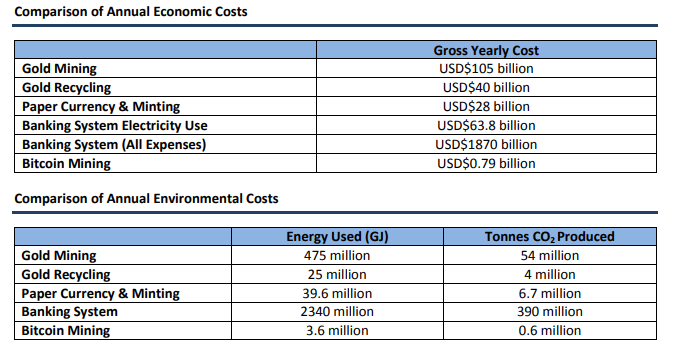The bitcoin mining infrastructure uses a certain amount of energy and processing power to operate. The resource usage is often cited as part of arguments critical of bitcoin.
But relatively speaking how much more resources does bitcoin mining take compared to physical currency?
No body really talks about all the resources that it takes to use physical currency.
The money first has to be produced in a mint. That mint and the machines in it had to be built. These are all of course specialty machines and are probably very expensive. The building and machines require energy to operate. They all need to be maintained. And people need to be employed to do all those things.
Money is typically stored in banks. There are thousands of bank locations in the world. They all needed to be constructed. And those buildings all require resources and people to operate.
Physical currency must actually be moved. Moving any significant amount of physical currency requires security. A large store typically has to hire an armored car to transport money from their safe to the bank. An entire niche industry needs to exist to produce those vehicles. Security workers need to be employed to operate them and protect the money.
Money must be stored. Millions of safes/vaults were built so individuals, businesses, and banks can store their money. In general there is a lot of resources spent on securing physical currency.



